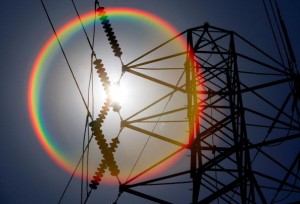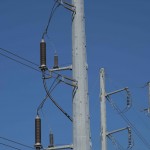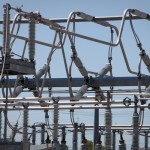Even When the Lights Are On in Texas, the Public Could Be in the Dark

Photo by Justin Sullivan/Getty Images
A unit at a major coal power plant shut down yesterday, causing concern at the Texas grid.
Welcome to August, the month when we all keep a close eye on the Texas electrical grid. And it can be a difficult thing to keep an eye on.
For instance, we temporarily lost up to 750 megawatts of power yesterday when a unit of Luminant’s Martin Lake coal-fired power plant shut down in Northeast Texas. That’s enough power for 150,000 Texas homes at times of peak demand, and it comes at a time when the grid is already breaking monthly records for demand.
But the Electric Reliability Council of Texas (ERCOT), which manages the state’s grid, wouldn’t confirm a short report in Reuters today about the shutdown. “We can’t comment on specific units,” Robbie Searcy, a spokesperson for ERCOT says. But more generally, Searcy does confirm that several units were “on forced outage yesterday.”
There’s no easy way for the public to know when power plants have shutdowns. We just tried to learn more about the Luminant shutdown. But like a game of musical chairs starring your favorite acronyms, ERCOT suggested calling the PUC (Public Utility Commission). And the PUC, in turn, said to call the TCEQ (Texas Commission on Environmental Quality). Guess who the TCEQ said to call? ERCOT and the PUC.
When a generating unit shuts down, it typically makes an emissions report to the TCEQ. (The first report is preliminary, but they must file a formal report within ten days.) The TCEQ helpfully pointed us to the report for yesterday’s shutdown at Martin Lake Unit 1.
What happened? If you’re an engineer, parse this: “The unit tripped when the condensate recirculation valve stuck open causing the deaerator tank to empty.” The event started a little after 11:30 am.
“Conditions were tight through the afternoon,” Robbie Searcy of ERCOT says. ERCOT’s grid condition status went from green to orange, and they strongly encouraged conservation from 3 to 7 pm. But the grid didn’t go into Energy Emergency Alert status, where some larger customers (like industrial facilities) may be cut off from power temporarily to avoid large outages.
So why is there is no simple way for the public to know when power plants have shutdowns, or when they start back up?
Power plant operators and state officials point to the need for competitive secrets in Texas’ deregulated market. If a power plant operator isn’t generating enough electricity to fulfill its contracts because of a shutdown, it might need to buy power on the open market from someone else.
“Obviously, if that alternate supplier knows that the [operator of the shut-down plant] is ‘over a barrel,’ they can be taken advantage of,” Kent Saathoff, who’s in charge of planning and operations for ERCOT, observed to StateImpact Texas earlier this year. “So that’s one example of why power plant status and information is largely protected.”
When Texas went through rolling blackouts in early February 2011, it was because individual plants malfunctioned during extremely cold weather. But the public didn’t know which plants went out unless the companies themselves disclosed it. And those outages, as we reported earlier today, resulted in more profits for the power generators. Wholesale prices were 67 percent higher in February 2011 than during the same month a year earlier.
As for the immediate outlook, Luminant wouldn’t publicly confirm that the Martin Lake plant is back online, but ERCOT says things appear better today. “Some units that were down yesterday are back today and peak demand isn’t expected to be quite as high,” ERCOT’s Searcy says. “But we’re continuing to monitor it very closely and encourage conservation from 3 to 7 pm.”
So far this year, ERCOT hasn’t had to issue any Energy Emergency Alerts or institute rolling blackouts. But August is usually our hottest month, and it’s only just begun.
Earlier: There Was Enough Profit in Texas Market Last Year to Build New Power Plants





